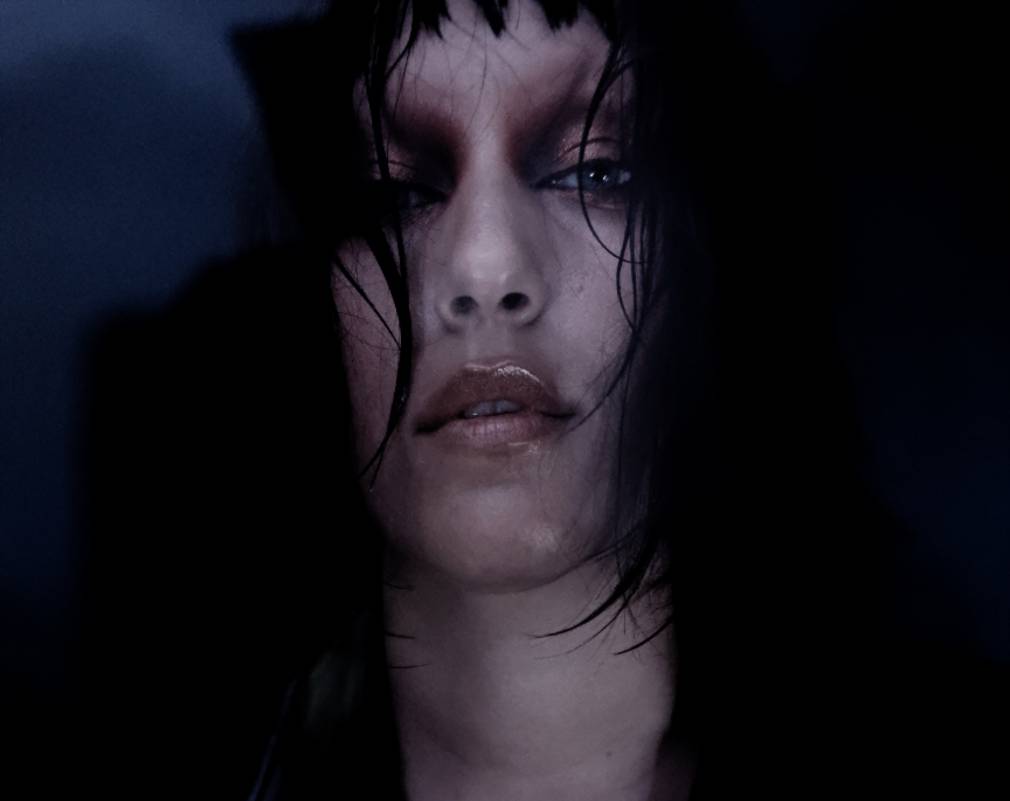Following the launch of the EP Tan on Warp Records, and then Ancestor Boy (the experimental r’n’b debut album that led her to tour the world in 2019) Lafawndah has embarked upon some remarkable collaborations, notably with avant-garde percussionist Midori Takada, as well as forays into fashion, visual music, and contemporary art. It’s a beautiful repertoire, totally fitting considering this magnetic artist’s thirst for musical and spiritual exploration. She’s back today with “You, at the End”, a masterful rereading of a Kate Tempest poem and the cornerstone of The Fifth Season, a second album due out on 8th September on the out-of-this-world French label Latency.
Whilst maintaining the electro feel and experimental soul that’s close to the singer’s heart, this second album takes a powerful orchestral turn. It is haunted by a twilight brass from Theon and Nathaniel Cross, influences of London jazz, Valentina Magaletti’s timpani, Fever Ray-style keys from Nick Weiss, as well as the rapper Lala &ce for a superb final duet. With intense incantations that occasionally, disturbingly evoke Björk – particularly on “You, at the End” – Lafawndah stands as a high priestess on the brink of a new world, with six tracks of light and dark, ‘songs of ashen rain; ballads for an overturned world’ fed by dense literary and musical references.
We find “The Woman the Boy Became” by Kate Tempest, but also “Vieille Prière Bouddhique”, from a piece by Lili Boulanger dating from 1917 (entitled “Old Prayer”), a cover of trans singer Beverly Glenn-Copeland’s song “Don’t Despair”, and multiple references to the Broken Earth trilogy by African-American science-fiction writer N.K. Jemisin. ‘The book was a guest on the album,’ Lafawndah explains. ‘I was really moved by it because even though it’s about the end of the world, it’s also about a new order, a renewal. Dystopian discourses really affected me growing up, and I much prefer people who imagine the end of capitalism, patriarchy, and the nation state. So The Fifth Season is an invitation to imagine what doesn’t exist yet, but is already in the air – a collective awakening.’ It is utopia and a new dawn.
For The Fifth Season, Lafawndah has taken a very different approach to the highly productive creative process that produced Ancestor Boy. This time she’s focused on letting go, listening to her intuition, and working on collective improvisation. ‘I feel like this record used me in order to enter this world, and I was just it’s conduit. The music is completely free and it flowed through me, beyond my will or my control. It’s music for the day after the world ends’ she explains, speaking from London where recording took place.
Born in Paris, Lafawndah has travelled extensively, from New York to Tehran and New Delhi, from Mexico to the tropics. Alongside this, the artist has cultivated an aesthetic of displacement for herself and her evolving art, a new musical continent on the border of Eastern and Western traditions. ‘Music that sits nowhere,’ she says speaking of Lili Boulanger’s work. In The Fifth Season, Lafawndah explores the collective dimension of ritual, as well as the healing powers of repetitive music, influenced as much by Egyptian zār, traditional Indian music and gnawa, as by leaders of the American minimalist music movement such as Steve Reich, Monte Young, and Terry Riley. ‘I’ve always been fascinated by a state of trance. I often think about how we listen to and consume music now. For me it’s very important not to forget the social, almost psychiatric, aspect of music, in that it’s capable of healing’.
There’s no doubt about it, this record couldn’t have come at a better time.
Listen to “You, at the End” by Lafawandah in our Songs of the Week playlist on Spotify and Deezer.




